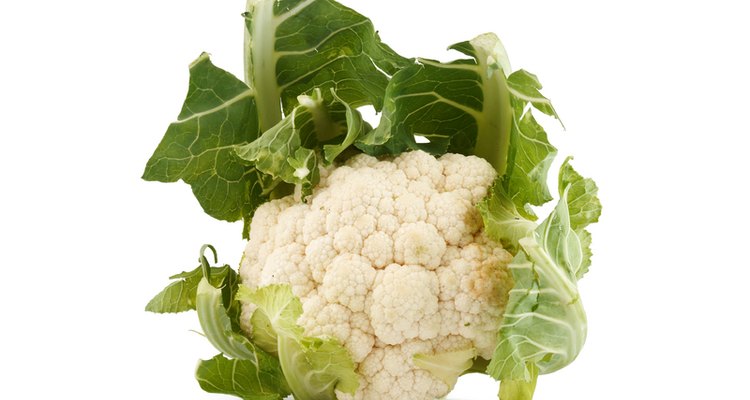
Nutrition professionals are usually touting the benefits of colorful fruits and vegetables. True, deeply colored vegetables such as beets, kale, tomatoes and carrots contain disease-fighting flavonoids. However, most produce is nutrient-rich. Cauliflower, a member of the cruciferous family, lacks the green chlorophyll found in other vegetables of this class (broccoli, cabbage, and kale), because the florets are shielded from the sun by the plant's leaves during growth. Cauliflower is not pale in terms of nutrition either. Its nutrients help strengthen the immune system and protect against the development of cancer.
An Immune System Soldier
All fruits and vegetables provide nutrients that strengthen the immune system, and cauliflower is no exception. It's an excellent source of folate and vitamin C. Just three raw florets provide 67 percent of the Daily Value (DV) for vitamin C. That's more than some citrus fruits. The same amount offers 9 percent of the DV for folate. A strong immune system is essential for staving off everything from the common cold to heart disease. By eating foods rich in the antioxidant nutrients vitamins C, E, beta-carotene and selenium, you are stacking the deck against illness in your favor.
A Cancer-Fighting Crusader
Although cauliflower's cousin, broccoli, gets most of the attention as a nutrient powerhouse, cauliflower provides many of the same nutrients. In fact, cauliflower is an excellent source of two phytonutrients (chemical nutrients found in plants), sulforaphane and indole-3-carbinol (I3C). Together, these nutrients (found in all cruciferous vegetables) help prevent cancer in two ways. They prevent enzymes from activating cancer-causing agents in the body, and they increase the body's production of enzymes that clean toxins and carcinogens out of the system before they can damage cells. Also, IC3 is a particularly powerful anti-tumor agent, which reduces levels of hormones that may stimulate cellular changes (and, ultimately, tumor growth) in cells of the breasts and prostate.
A Heart Helper
Cauliflower may help decrease cholesterol, particularly LDL, or bad, cholesterol in two ways. First, it is an excellent source of dietary fiber, providing about 3.5 grams, or greater than 13 percent of the DV, in 1 cup, cooked. On average, people who consume the most dietary fiber have a healthier lipid profile. Second, IC3 (powerful cancer-fighting phytonutrient mentioned above) appears to reduce the liver cells' production of apolipoproteinB-100 (apoB) by over 50 percent. ApoB is the main transporter, or carrier, of LDL cholesterol to tissues. High levels of LDL are linked to atherosclerosis (deposit of plaque in artery walls which is a contributing factor to heart disease and stroke). In addition, folate-rich vegetables, such as cauliflower, are considered heart-protective because folate helps to lower the amount of circulating homocysteine, an amino acid linked to cardiovascular disease, in the bloodstream.
Related Articles

Nutrition: Fruit and Vegetable Colors
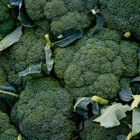
Vegetables That Are Considered to Be ...
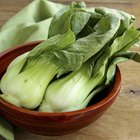
Bok Choy Nutrition
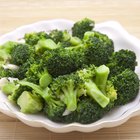
Nutrients for Steamed Broccoli

What Is the Difference Between Roughage ...

What Are the Health Benefits of ...

Different Types of Fruits & Vegetables
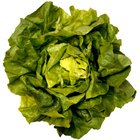
Nutritional Benefits of Butter Leaf ...
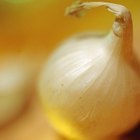
Nutrition Information for an Onion
How to Cook Fresh Cauliflower in a ...

Health Benefits of Potatoes, Onions and ...

Does Deep-Frying Vegetables Rob Them of ...

Physical Characteristics of the Ruby ...
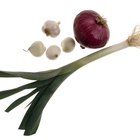
What Are the Health Benefits of Cooked ...
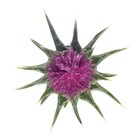
Does Milk Thistle Lower Liver Enzymes?
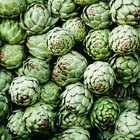
Can You Eat Raw Artichokes?

Petrolatum and Acne
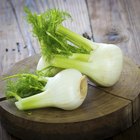
What Are the Health Benefits of Fresh ...
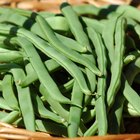
Green Bean Nutrition

B-6, Zinc & Acne
References
- Journal of Nutrition; Cruciferous Indole-3-Carbinol Inhibits Apolipoprotein B Secretion in HepG2 Cells; G.K. Maiyoh, J.E. Kuh, A. Casaschi and A.G. Theriault; October 2007
- Journal of American Dietetic Association; Vegetables, Fruit, and Cancer Prevention: A Review; K.A. Steinmetz and J.D. Potter; October 1996
Resources
Writer Bio
Michele Turcotte is a registered, licensed dietitian, and a certified personal trainer with the National Academy of Sports Medicine. She has more than 12 years of experience in clinical and corporate settings, and has extensive experience in one-on-one diet counseling and meal planning. She has written freelance food and nutrition articles for Trouve Publishing Inc. since 2004.
Photo Credits
© Goran222 | Dreamstime.com